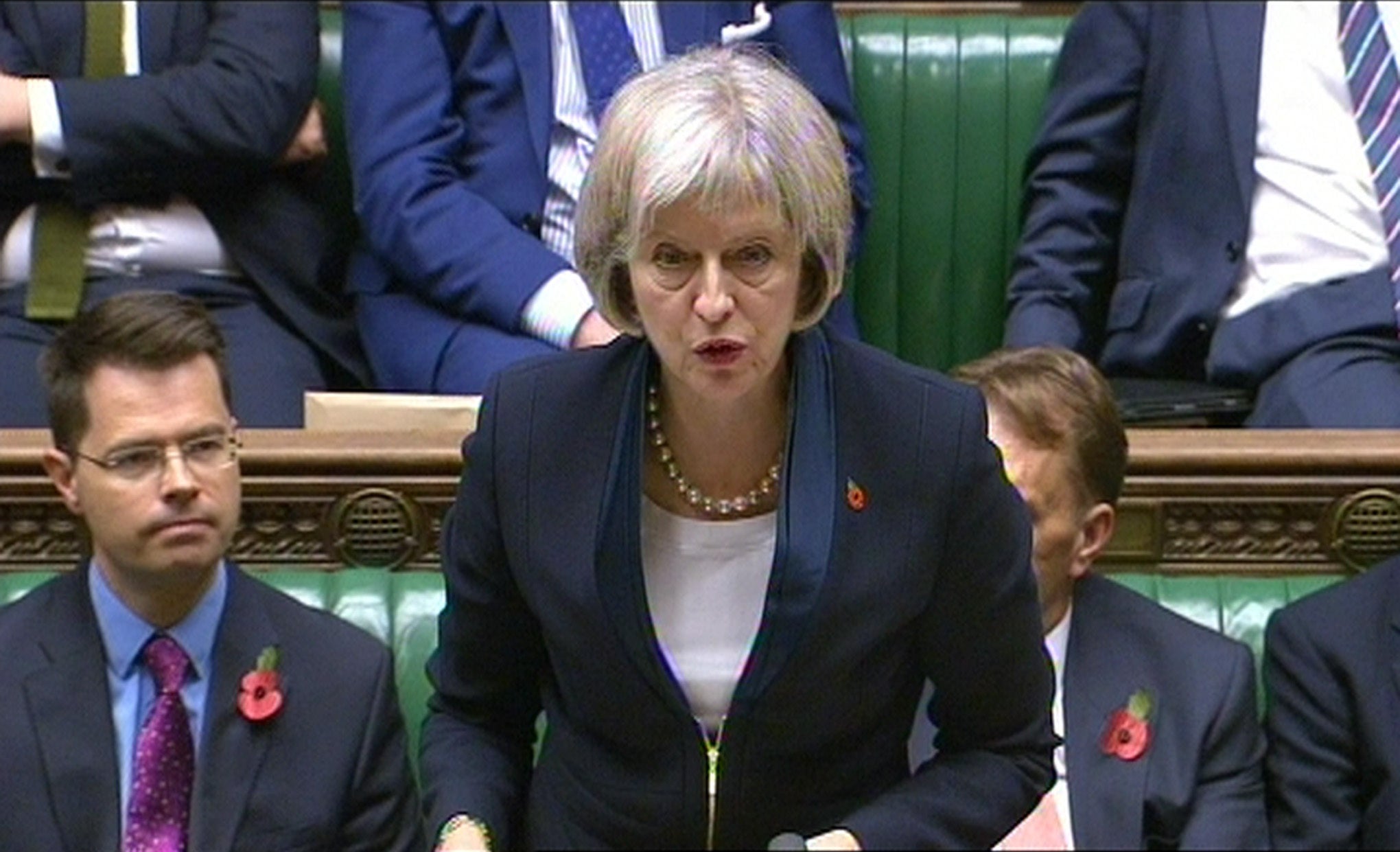Your support helps us to tell the story
From reproductive rights to climate change to Big Tech, The Independent is on the ground when the story is developing. Whether it's investigating the financials of Elon Musk's pro-Trump PAC or producing our latest documentary, 'The A Word', which shines a light on the American women fighting for reproductive rights, we know how important it is to parse out the facts from the messaging.
At such a critical moment in US history, we need reporters on the ground. Your donation allows us to keep sending journalists to speak to both sides of the story.
The Independent is trusted by Americans across the entire political spectrum. And unlike many other quality news outlets, we choose not to lock Americans out of our reporting and analysis with paywalls. We believe quality journalism should be available to everyone, paid for by those who can afford it.
Your support makes all the difference.The Government’s Investigatory Powers Bill, outlined by the Home Secretary, has been dubbed a “snooper’s charter” by critics. It may, in fact, offer a licence to security agencies and to criminals that we come to regret.
Existing legislation is less than satisfactory, either because it has been abused by the authorities – as in the case of the Regulation of Investigatory Powers Act – or because it is out of step with modern technology. It is perfectly reasonable that the Government should want to initiate a thorough overhaul.
Yet there is a paradox in the approach taken by Theresa May and her officials. We are told that the authorities need to stay one step ahead of terrorists and criminal minds, and that they cannot do so unless underlying legislation is responsive to the reality of today’s internet world. But it is precisely that reality – of hacking and data breaches – which will cause many people to be anxious about the mass retention of their data by communications companies.
The failure by TalkTalk to keep its customer data secure brought home just how vulnerable big corporations are to hackers. While civil liberties campaigners focus on the invidious potential for the state to examine our private internet browsing history, for ordinary people the greater worry may be the ability (or otherwise) of commercial giants to hang on to data securely for the year demanded by the Government.
That’s not to say that the fundamental anxiety about state snooping should be underplayed. Nor should we be fooled by the notion that the new proposals amount to a vastly watered-down version of the plans Ms May sought to bring forward during the last parliament and which were stymied by the Liberal Democrats. This time, the Lib Dems are thwarted themselves by lack of numbers and appear to have acquiesced in the Government’s plans. Likewise, Labour has swung behind the measures: the shadow Home Secretary, Andy Burnham, says the Bill is “neither a snooper’s charter nor a plan for mass surveillance”.
Such a lack of political opposition is surprising, and it may be left to the Lords once again to raise some sage eyebrows. After all, whatever safeguards are in place, the idea that every citizen of the UK will now have their internet browsing history kept on file for a year by their broadband provider, for perusal by security agencies should the need arise, is surely staggering.
As always, there will be those who contend that people who do no wrong have nothing to fear. That is facile, and, in any case, the authorities are hardly infallible.
Ms May urges us not to worry: for the most part, we’re told, the police won’t be able to access our full browsing history, just the basics about which sites we visit – the “modern equivalent of an itemised phone bill”. Except that it isn’t. Once again the Government demonstrates that, in endeavouring to bring difficult legislation up to date, it has little real comprehension of how fundamental the internet has become to most people’s lives. To proclaim it simply the telephone of the 21st century is either obtuse or a deliberate attempt to mislead.
None of this should be taken as a lack of support for Britain’s security services. They do a difficult job and, on occasion, will require controlled access to the communications data of suspects. But let’s not pretend that the Government’s Bill does not have the potential to impact on our civil liberties in fundamental ways.

Join our commenting forum
Join thought-provoking conversations, follow other Independent readers and see their replies
Comments